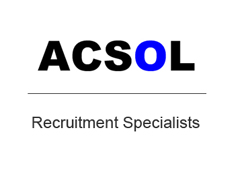Here is an excellent article posted by Bernard Marr who is a best-selling author, keynote speaker and leading business and data expert. You can follow him on LinkedIn, Facebook, Twitter, etc.
“Keep your head down and your nose to the grindstone. That’s what a lot of us were taught to believe about work. But is it really the best strategy?
I find that people often take this sort of advice to heart — and then learn too late in their careers that there’s more to life (and success) than just keeping busy.
I’ve gathered up my top 10 lessons you should take to heart now, before it’s too late!
- Life is short. Here’s the thing: Life is too short to put up with a job you hate, a boss who demeans you, or a company with no soul. Many people convince themselves that they can put up with a job or career situation that makes them unhappy because they need the income, because they don’t know if they can find another job, or for some other reason. But the truth is none of us knows how long we have on this earth, and spending too much of it in a bad situation will only make you miserable and regretful. If you’re in this situation, take a step today — no matter how small — toward a better situation.
- Social networks matter. You might think that networking events are dull, that it’s boring to chat with coworkers around the watercooler, or that you’re simply a born introvert, but study after study confirms that social networks are vital to our success. In fact, the most successful people tend to have the broadest and most diverse social networks. The more time and effort you put into nurturing your social networks, the more successful you are likely to be.
- Sacrificing your health for success or wealth isn’t worth it. Many driven, successful people have a hard time creating work/life balance and can end up burning out or developing serious health problems from stress and overwork. The truth is, it’s much easier to stay healthy than to heal from a problem or disease — and no amount of success or money can replace your health. Don’t take your health for granted and take steps to mitigate stress that could cause problems later.
- None of the best moments of your life will take place looking at a screen. In our connected world, it’s tempting to let all the little screens we have access to dictate our lives. But you’ll never reach the end of your life wishing you’d spent more time checking email on your phone. Disconnect regularly and experience real life.
- Never stop learning. With the rate at which technologies are changing today, if you decide that you are “done” learning, you will be left behind within a matter of years, if not sooner. The idea that you can’t teach an old dog new tricks is blatantly false, and you will never wake up and regret having invested in your mind by learning something new.
- Diversify. Hand in hand with learning, if you stick to only doing what you know, or what you are good at, you may quickly find that you’re only good at one thing. We need to be agile, nimble, and interested in many different things. Otherwise, you could get stuck in a job or career you don’t love, or that goes with the times. Think of the taxi driver threatened by Uber or the customer service person replaced by a chatbot.
- You can go fast alone, but you can go farther together. In other words, teamwork makes the dream work. Many people claim they don’t like to work in teams, but the ability to work well in teams is vital if you want to succeed. The idea of the solo auteur is a myth; every big idea needs a team to make it happen.
- Worrying doesn’t achieve anything. The antidote to fear and anxiety is action and hustle. If you’re wasting time because you’re afraid to pursue an idea, speak up, or are worried what others will think of you, you won’t achieve your goals. If you push through the worry and the fear, however, and take action, you’ll almost always find that you were worried about nothing.
- Failure is not an end. If you give up when you fail, you’ll never learn anything. Instead, look at failure as an opportunity, as the beginning of a new journey. If you do, you’re much more likely to try again and succeed at something else.
- Happiness is a journey, not a destination. So many people put off their happiness; they think, “I’ll be happy when I get that job, when I lose that weight, when I’m in a relationship, when I’m out of a relationship…” and so on. But we can choose to be happy. Happiness is a habit and a choice. No matter what your situation, if you can approach it with an attitude of happiness, you will be more successful.



